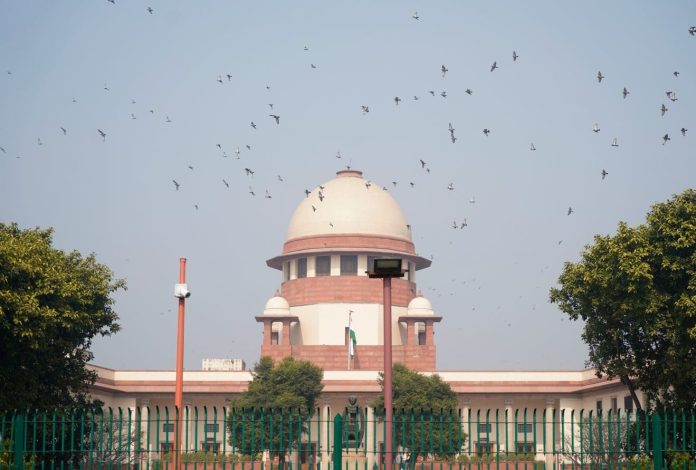New Delhi: The Supreme Court of India has stayed the Bombay High Court’s recent verdict that acquitted all 12 Muslim men accused in the 2006 Mumbai local train blasts. However, the apex court clarified that the acquitted individuals would not be required to return to prison, reported the Livelaw.
A bench led by Chief Justice B.R. Gavai issued notice in response to criminal appeals filed by the State of Maharashtra, which sought to challenge the Bombay High Court’s judgment delivered on July 21. The top court stated that while it was not reversing the acquittal, the high court ruling would not be treated as a legal precedent in other cases.
Solicitor General Tushar Mehta, representing the Maharashtra government, emphasized the seriousness of the matter and urged the court to stay the High Court’s judgment. He argued that the observations in the High Court’s decision could impact other pending trials under the Maharashtra Control of Organised Crime Act (MCOCA).
“There is an element of urgency,” said Mehta, adding, “Your lordships may consider staying the judgment, but not require the accused to be sent back to jail.”
The Supreme Court noted that since the accused have already been released, it saw no need to send them back to custody. However, it acknowledged the Solicitor General’s concerns and stated, “We are inclined to hold that the impugned judgment shall not be treated as a precedent. To that extent, there is a stay of the impugned judgment.”
The Bombay High Court had earlier overturned the convictions handed down by a special MCOCA court, which had sentenced five of the accused to death and seven to life imprisonment for their alleged involvement in the deadly blasts on Mumbai’s Western Railway line on July 11, 2006. The twin-judge bench comprising Justice Anil Kilor and Justice Shyam Chandak ruled that the prosecution had failed to prove its case beyond reasonable doubt and highlighted custodial torture and forced confessions by the Maharashtra Anti-Terrorism Squad (ATS).
The 12 acquitted individuals—Kamal Ansari, Mohammad Faisal Ataur Rahman Shaikh, Ehtesham Qutubuddin Siddiqui, Naveed Hussain Khan, Asif Khan, Tanveer Ahmed Mohammed Ibrahim Ansari, Mohammed Majid Mohammed Shafi, Shaikh Mohammed Ali Alam Shaikh, Mohammed Sajid Margub Ansari, Muzammil Ataur Rahman Shaikh, Suhail Mehmood Shaikh, and Zameer Ahmed Latiur Rehman Shaikh—had spent close to 20 years in prison awaiting justice.
Family members of the acquitted men expressed that they had long maintained the innocence of their loved ones, asserting that the convictions were based on coerced confessions obtained through brutal third-degree custodial torture. The High Court’s judgment, they believe, finally vindicates their decades-long struggle.




